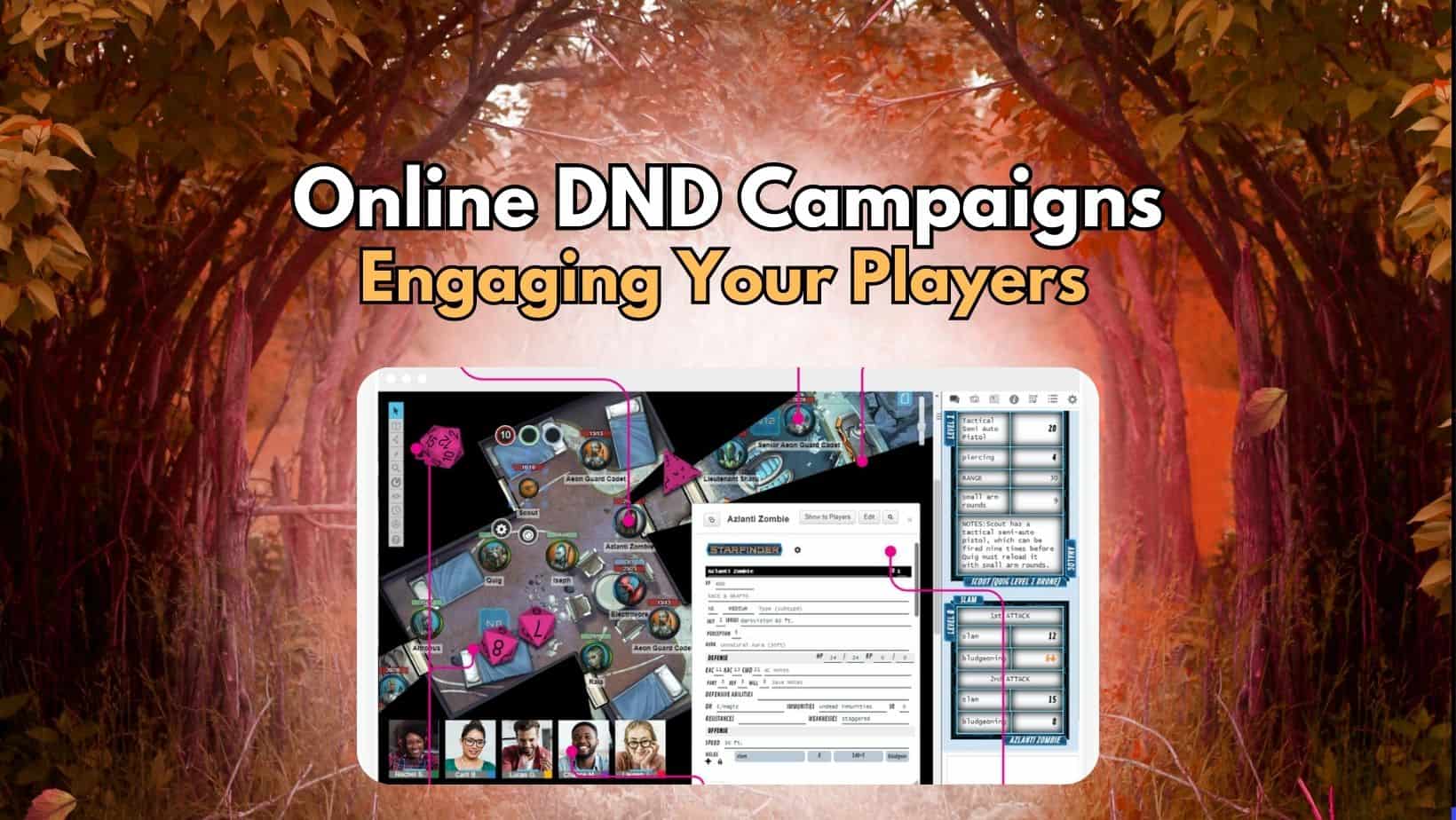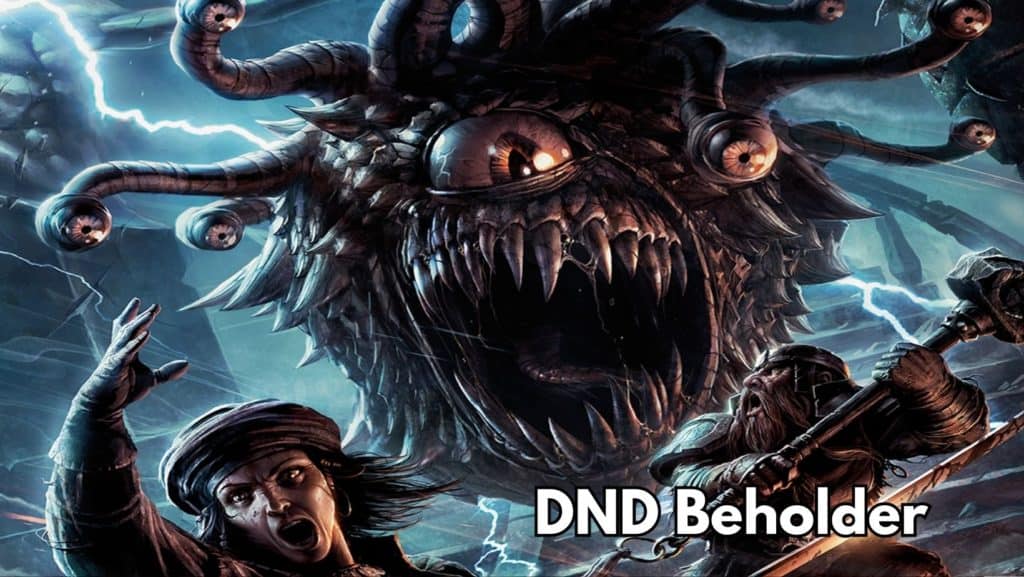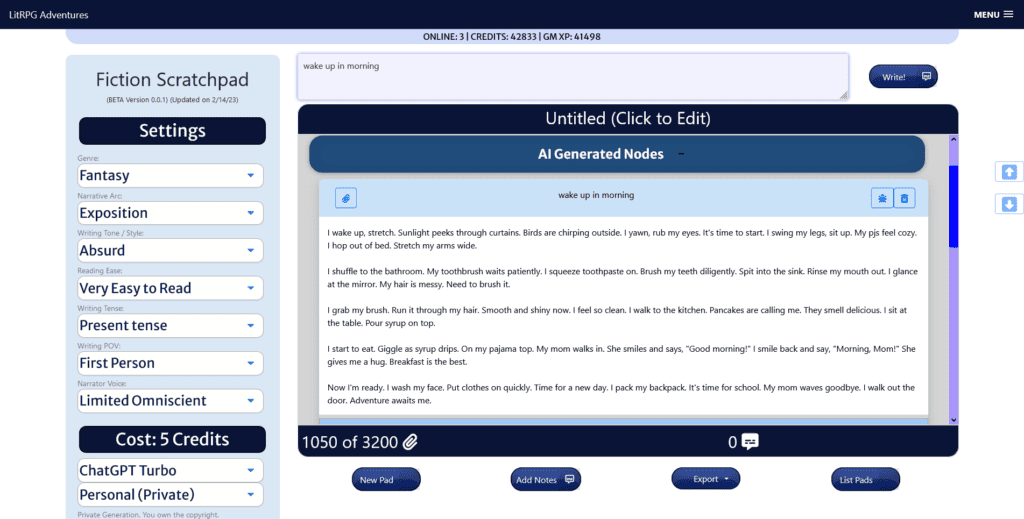The advent of technology has not only transformed the way we interact with the world but has also had a significant impact on classic tabletop games like Dungeons & Dragons (D&D). The traditional setting of a D&D game—a cozy room with character sheets strewn about, dice ready to be rolled, and snacks on the table—has been extended to include virtual tabletops accessible from anywhere. But as Dungeon Masters and players take their adventures online, there are new challenges to overcome, particularly in maintaining the same level of player engagement and immersion that a physical setting can offer so readily.
Switching to a digital platform does offer its own set of benefits. Players from across the globe can join forces in epic quests without the need for geographic proximity. Gone are the days where campaigns disintegrate due to members moving away or being unable to meet at a physical location. Tools like Roll20 or Fantasy Grounds offer digital maps, tokens, and even automated dice rolls, adding an exciting new layer to game mechanics.
However, the online world presents its own set of challenges. How does a Dungeon Master maintain tension and engagement over a Zoom call? How do players feel the real impact of their decisions when they’re not sitting across from each other, eyes meeting over the dim light of a tabletop lantern? These are questions of player engagement that become even more critical when navigating a digital setting.
This article aims to explore these questions and offer tangible solutions for both new and experienced Dungeon Masters. We’ll delve into the technological options available for running a campaign, tips for adapting your Dungeon Master skills to a virtual environment, and strategies for keeping your players invested when they’re not physically present at the table. Read on to learn how to make your online D&D campaign as engaging and immersive as its offline counterpart.
Technology Platforms for Online D&D
The success of an online D&D campaign often hinges on the technology that facilitates it. Although nothing can completely mimic the tactile experience of dice rolling across a tabletop, there are various digital platforms that offer a close approximation. In this section, we’ll examine the pros and cons of some of the most widely used options to help you make an informed choice.
Roll20
Roll20 has been a mainstay in the world of online tabletop gaming for several years now. Known for its user-friendly interface and versatility, it’s a go-to for many players and Dungeon Masters.
Quick Take
- Pros: Accessible, broad customization, and large user base.
- Cons: Advanced features require time to master, some features behind paywall, and occasional server issues.
Pros
- User-Friendly Interface: Roll20 is accessible to newcomers thanks to its simple, intuitive interface.
- Built-in Character Sheets: The platform provides system-agnostic character sheets that are customizable.
- Dynamic Lighting: A feature available to paid accounts, dynamic lighting adds an extra layer of immersion.
- Large User Base: Being popular means it’s easier to find campaigns or players.
Cons
- Learning Curve: The basic features are simple, but mastering advanced functions takes time.
- Cost: Some features, like dynamic lighting, are restricted to paid accounts.
- Server Stability: Being cloud-based, Roll20 sometimes suffers from server issues.
Fantasy Grounds
Fantasy Grounds is another heavy-hitter, especially known for its deep customization options. It’s particularly well-suited for tech-savvy Dungeon Masters who want total control over their gaming environment.
Quick Take
- Pros: Highly customizable, robust game mechanics, license sharing.
- Cons: Expensive, steep learning curve, and higher system requirements.
Pros
- Highly Customizable: Tailoring your experience is easy if you’re tech-savvy.
- Robust Mechanics: Supports advanced dice-rolling, combat trackers, and more.
- License Sharing: A premium license can be shared, reducing cost for other players.
Cons
- Pricey: Initial setup and rulebook purchases can add up.
- Steep Learning Curve: It takes time to master the platform’s numerous features.
- System Requirements: Demands more from your computer than browser-based options.
Discord
Discord is primarily a communication platform, but its adaptability makes it popular for tabletop gaming as well. It excels in creating a community vibe and is usually used in conjunction with other platforms for the best experience.
Quick Take
- Pros: Free, versatile with bot integration, great for community building.
- Cons: Limited built-in game features, variable audio quality, and can be disorganized.
Pros
- Free to Use: Text, voice, and video chat are available for free.
- Bot Integration: Bots can handle roles, dice rolls, and other game mechanics.
- Community Building: Great for maintaining community interaction between sessions.
Cons
- Limited Features: It lacks the specialized tabletop features of Roll20 or Fantasy Grounds.
- Audio Quality: Generally good but can be inconsistent.
- Organization: Large groups require meticulous channel and role management to avoid chaos.
Choosing the right platform will depend on various factors like your specific needs, desired level of immersion, and resources you’re willing to invest in terms of time and money.
The Digital Dungeon Master
In an age where digital technology dominates various aspects of life, even the time-honored tradition of Dungeon Mastering has adapted to fit into pixels and data packets. Transitioning from a physical tabletop to an online platform presents its own set of unique challenges and opportunities. Whether you’re navigating digital tools for the first time or you’re an experienced online DM looking for a refresh, this section will guide you through adapting traditional DM skills for a digital environment, as well as offer strategies for effective storytelling and description.
Try my AI Tabletop RPG generators...and an extensive library of content!
⚔️ Fantasy RPG Random Tables Books
Make life as a Gamemaster easier…
If you play Dungeons & Dragons, Pathfinder, or other fantasy RPGs, this
RPG random tables series
is packed with encounters, NPCs, treasure, and more. Available in eBook or print—either way, you’ll have a wealth of adventure ideas at your fingertips.
Adaptation of Traditional DM Skills to an Online Environment
Transferring your DM abilities from a live tabletop setting to an online platform involves more than just learning how to navigate a new interface. Let’s delve into the specific adjustments and enhancements you’ll need to make.
Quick Points
- Pros: Accessibility, flexibility, and a wide array of digital tools.
- Cons: Less direct player interaction, potential for technical issues, loss of physical game elements.
Time Management
- Online Benefits: Built-in timers, automated processes, and streamlined bookkeeping.
- Adjustment Strategy: Learn to use these tools to keep the game flowing and avoid slowdowns.
Player Engagement
- Online Benefits: Direct messaging, player-specific digital notes, and handouts.
- Adjustment Strategy: Utilize these features to give tailored information and maintain engagement.
Rule Enforcement
- Online Benefits: Automated rule engines, pre-calculated rolls, and system-specific character sheets.
- Adjustment Strategy: Familiarize yourself with how the platform enforces rules so you can focus on storytelling.
Handling Distractions
- Online Challenges: More potential for players to be distracted by other browser tabs, notifications, etc.
- Adjustment Strategy: Set rules for in-game and out-of-game chat, and maintain an energetic pace to keep players focused.
Strategies for Digital Storytelling and Descriptive Language
Digital storytelling doesn’t have to be less immersive; in fact, online platforms can enhance your storytelling if you adjust your approach. Your words remain the most potent tool in your arsenal, but now you’ve got digital aids to back them up.
Pacing and Flow
- Online Benefits: Digital tools can automatically handle things like initiative, saving throws, and damage calculations.
- Strategy: Use this automation to speed up combat and other procedural aspects, giving you more time for storytelling.
Descriptive Depth
- Online Benefits: Visual aids like digital maps, background images, and even mood-setting music.
- Strategy: Integrate these elements to deepen the atmosphere, using them to supplement rather than replace your descriptive language.
Player Engagement
- Online Benefits: You can direct-message players for side quests, inner thoughts, or secret information.
- Strategy: Use this to create layers in your storytelling, giving players additional agency and personal stakes in the narrative.
Collaboration and Participation
- Online Benefits: Easier sharing of written background stories, character art, and other player-generated content.
- Strategy: Encourage players to contribute, making the narrative more collaborative and engaging.
The shift to a digital platform doesn’t lessen the essence of being a Dungeon Master; it merely alters the medium. Adapting to these changes while maintaining your skills and flair for storytelling can make you a master of both the physical and digital realms of D&D.
Online Player Engagement
The shift to online Dungeons & Dragons campaigns has opened up an array of possibilities but has also introduced unique challenges, especially when it comes to player engagement. While the digital realm offers features that can enhance gameplay, it also presents the risk of distractions, multitasking, and reduced social cues. Therefore, keeping players invested and attentive is an art unto itself in online sessions. This section will offer tips and insights to conquer these issues, ensuring that your adventures remain as compelling and engaging as they are in the physical world.
Tips for Keeping Players Invested and Attentive During Online Sessions
Online gameplay offers several tools to enhance storytelling and interaction, but these can only go so far if your players are not fully engaged. Below are some strategies to keep everyone on the edge of their seats.
The Importance of Pre-Session Preparation
- Pros: Allows for a smoother game experience, setting the stage for deeper engagement.
- Cons: Takes time and planning ahead of the game session.
- Strategy: Share brief session previews, character spotlight teasers, or questions to ponder before the session to pique interest.
Use of Digital Assets for Immersion
- Pros: Visual and auditory elements can make the setting more vivid.
- Cons: Overuse can be distracting or slow down the game.
- Strategy: Use assets like digital maps, artwork, or background music judiciously to enhance rather than dilute the story’s potency.
Direct Engagement Techniques
- Pros: Digital platforms allow for whisper chats, polling, and other directed interactions.
- Cons: Can potentially sideline players who are not the focus of a particular moment.
- Strategy: Make sure to rotate the spotlight and use direct engagement with each player to maintain a balanced and inclusive experience.
How to Handle Distractions and Multi-tasking
Even the most riveting story can lose its impact if players are distracted. In an online environment, the risk of multi-tasking and divided attention is higher. Here’s how to manage these challenges:
Establishing Ground Rules
- Pros: Sets expectations and boundaries for behavior during the session.
- Cons: May require reinforcement and reminders, possibly breaking game flow.
- Strategy: Discuss and agree upon ground rules for things like phone usage, side conversations, and focus during gameplay.
Quick Engagement Checks
- Pros: Allows for on-the-fly adjustments to maintain interest.
- Cons: Can break narrative immersion if done too frequently.
- Strategy: Periodically ask open-ended questions or request feedback to gauge engagement and make needed adjustments.
Use of In-Game and Out-of-Game Signals
- Pros: Helps maintain focus and delineates between game-related and other conversations.
- Cons: Requires players to remember and use the signals correctly.
- Strategy: Establish signals or keywords for in-game actions, queries, or role-playing to keep the session on track.
Maintaining player engagement in online D&D sessions requires a proactive approach, a keen understanding of the digital platform’s features and limitations, and the flexibility to adapt your Dungeon Mastering skills to a new format. These strategies aim to help you achieve just that, creating an online experience that is both rewarding and memorable for all involved.

Virtual Tools for Immersion
In the era of online Dungeons & Dragons, the importance of immersion can’t be overstated. The virtual environment offers a treasure trove of tools to enhance gameplay, making sessions feel as authentic and engrossing as their real-world counterparts. This can range from digital maps and tokens to more advanced options like integrated audio and visual elements. Additionally, new AI-powered tools like LitRPG Adventures Workshop RPG tools with ChatGPT and GPT-4 offer a level of automation and storytelling prowess that could revolutionize the way DMs and players interact with the game.
Utilizing Digital Maps, Tokens, and Virtual Tabletops
Virtual tabletops have become an essential tool for online D&D sessions, providing a spatial reference point that mimics a traditional game board. Platforms like Roll20 or Fantasy Grounds offer a wide array of options, from interactive maps to custom tokens. While the basic idea remains the same—to provide a visual representation of the game world—each virtual tabletop has its unique features that can be explored to maximize immersion. For example, some virtual tabletops allow for dynamic lighting, affecting how characters perceive their environment based on their line of sight.
Integration of Audio and Visual Elements for Atmospheric Effect
Another layer of immersion comes from integrating audio and visual elements into your session. This can be as simple as using background music to evoke a mood or as complex as utilizing ambient noise and visual effects to simulate different environments. Some DMs use third-party audio tools to insert sound effects on-the-fly, like the roar of a dragon or the rustling of leaves, to make the world feel more alive. However, caution should be exercised to ensure these elements enhance the gameplay, rather than distract from it.
Use of LitRPG Adventures Workshop RPG Tools with ChatGPT and GPT-4
The advent of AI-powered tools like ChatGPT and GPT-4, especially when integrated into RPG-focused platforms like LitRPG Adventures Workshop, adds another dimension to digital storytelling. These tools can generate plot ideas, NPCs, and even dialogue, offering a kind of co-DM that can either assist a busy Dungeon Master or act as a source of inspiration. While these tools can’t replace the nuances of human creativity, they can provide invaluable support for DMs looking to enrich their world with intricate details and unexpected plot twists.
⚔️ Fantasy RPG Random Tables Books
Make life as a Gamemaster easier…
If you play Dungeons & Dragons, Pathfinder, or other fantasy RPGs, this
RPG random tables series
is packed with encounters, NPCs, treasure, and more. Available in eBook or print—either way, you’ll have a wealth of adventure ideas at your fingertips.
The key to effectively using these virtual tools for immersion lies in moderation and a keen sense of what will genuinely enhance your storytelling. Remember, the best tool at your disposal is always your imagination, enriched and extended by the myriad of virtual resources available to today’s Dungeon Master.
Pacing and Timing
Mastering the art of pacing is crucial for any Dungeon Master, but it becomes even more pivotal in the realm of digital D&D. In an online setting, the Dungeon Master not only has to contend with the usual ebb and flow of storytelling but also with the added distractions and latency that virtual platforms can introduce. This makes controlling the pacing of your online game an invaluable skill. At its core, pacing in an RPG involves smoothly transitioning between different types of game sequences—from exploration and problem-solving to combat and roleplay—and keeping your players engaged throughout.
Adjusting the Pacing of the Game to Maintain Interest
Pacing can make or break an online session. In a virtual environment, players are more prone to distractions, which makes it vital to keep the game moving at a steady, engaging pace. Knowing when to ramp up the tension with a thrilling combat encounter or when to slow things down for some heartfelt role-playing can make all the difference. Tools like a real-time, in-game clock or even simple time-tracking can help you monitor the game’s pace. Be ready to adapt on the fly, introducing new elements or challenges to recapture interest if you sense the energy flagging.
Strategies for Smooth Transitioning between Exploration, Combat, and Roleplay Segments
Transitioning smoothly between different types of gameplay can significantly improve your pacing. Each segment—be it exploration, combat, or role-playing—has its own rhythm and demands. It’s essential to find ways to seamlessly switch between these aspects to maintain a cohesive and engaging narrative. Here are some strategies for smooth transitions:
- Cliffhangers: Ending a combat or exploration segment with a mini-cliffhanger can keep players invested in the story as it moves into a different phase.
- Narrative Bridges: Utilize descriptive narrative to connect disparate elements. For example, if the party is moving from combat to exploration, describe how the battle has affected the environment they are exploring.
- Thematic Consistency: Keeping a consistent theme across segments can make transitions less jarring. If the dungeon is water-themed, for example, both combat encounters and puzzles might involve manipulating water levels or battling water creatures.
- Character Focus: Use role-playing to transition between phases by encouraging characters to reflect on the recent combat or exploration, sharing their thoughts, fears, or speculations on what comes next. This not only offers a breather but also deepens character development.
- Signposting: Clearly indicate when one segment is ending, and another is beginning. This can be achieved through in-game events, like finding a new room in a dungeon, or meta-tools like announcing, “The combat is over; what do you want to do now?”
By mastering pacing and transitions, you’ll keep your players deeply engaged, making each session memorable and ensuring that your story unfolds in a compelling manner, even in a digital setting.
Conclusion: Digital DND Online Campaigns
Navigating the world of digital D&D as a Dungeon Master is a task fraught with challenges, but it’s also ripe with opportunities for memorable storytelling, immersive gameplay, and the kind of camaraderie that makes role-playing games such a cherished pastime. The key points to remember are mastering the technology platforms available, adapting traditional DM skills to a virtual setting, maintaining player engagement, utilizing virtual tools for immersion, and carefully pacing your game. Each of these components plays a critical role in translating the magic of tabletop role-playing into the digital realm.
As Dungeon Masters, you are already the stewards of fantastical worlds and the orchestrators of epic adventures. The shift to online doesn’t lessen that role; if anything, it expands it, offering new tools and methods to enhance your storytelling and keep players engaged. The virtual tabletop is just another stage upon which to unfold your tales of heroism, treachery, and adventure. Embrace the potentials of the digital realm—master its tools, adapt your skills, and, above all, never lose sight of what makes D&D so enduring: the joy of collaborative storytelling and the shared experience of embarking upon adventures that will be talked about for years to come.












